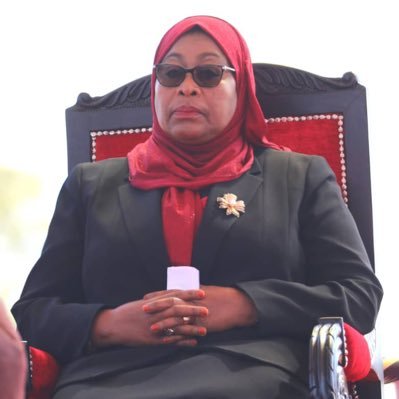
President Samia Suluhu Hassan has launched a fertiliser subsidy programme to start 2022/23 season.
A bag of DAP that was sold for Sh131,675 will now cost Sh70,000 only, while that of Urea, which used to fetch Sh124,714, will cost Sh70,000 only.
Agriculture minister Hussein Bashe said a bag of CAN, which used to fetch Sh108,156 will now sell at Sh60,000 while that of NPKs, which cost Sh122,695 will now cost Sh70,000. “Under the subsidy arrangement, the government will pay for a Sh52,000 subsidy,” he said.
He noted that as President Hassan launched Agenda 10/30 in April, not everyone was sure that it would really come to happen.
The ‘Ajenda 10/30’ details the Agriculture ministry’s efforts to rally both public and private sectors to turn around the fortunes of millions of Tanzanians earning a living in the agriculture value-chain.
With ‘Kilimo ni Biashara’ as its clarion call, the agenda aims to attain an impressive 10 percent annual growth rate for the sector that is the livelihood source for some 65 percent of Tanzanians.ADVERTISEMENT
The target should be met by 2030. The current growth rate is a measly two per cent while the government’s five year development plan projects the growth at 5.7 percent by 2025.
According to Agricultural Council of Tanzania chairperson Jacqueline Mkindi, the private sector was convinced that the government was going in the right direction as far as revolutionizing the agricultural sector was concerned.
The fertilizer subsidy programme comes within just weeks after the government raised the budget for agriculture from Sh251 billion in the 2021/22 financial year to a staggering Sh951 billion.
“It is now clear that agriculture will grow at an enhanced rate. The focus on irrigation means that ours will now be a sustainable agriculture as opposed to the one that is dependent on rain,” she said.
Speaking in Mbeya, President Hassan urged farmers to make better use of the opportunity by increasing agricultural efficiency and yields for domestic consumption and export.
“While the government has set aside funds for fertilizer subsidy, I would like to ask farmers to cultivate commercially to enable us harvest enough food so we will export the surplus,” she said in the televised address. “Generated funds should enable us establish the Agriculture Development Fund (ADF) for providing assistance to farmers during fertilizer and inputs price shocks.”
She directed farmers to pay the required charges that will enable establishment of the fund, observing that the subsidy will not be issued every year.
The Head of State directed regional, district, ward and village leaders to closely monitor farmer registration so as to identify beneficiaries.
“For efficient implementation of the programme, I should insist that all fertilizer bags must be properly labelled and every firm registered to supply subsidized fertilizer should unveil its agents in regional and district levels,” she instructed.
“The ministries of Agriculture as well as Finance and Planning should ensure subsidy funds are released on time ahead of farming seasons,” directed the President.
Livestock minister warned
During the event, President Hassan issued last warning to Livestock and Fisheries minister Mashimba Ndaki for failure to revive the National Ranching Company Limited (Narco) as had been ordered.
The President’s directive aimed at making better use of graduates in agriculture and livestock to up meat production to meet domestic needs and export the surplus.
President Hassan said the country’s grazing land could enable Tanzania lead in the livestock products’ trade across the continent.
She said this could be possible if Tanzania utilised well its 14 ranches.
“As it was in the agricultural sector, the livestock sector was also given share from the Covid-19 relief funds that was expected to be used for preparing livestock farms in the country’s ranches and employ the youth,” she said.
“Sokoine University of Agriculture (SUA) graduates are languishing in the streets. But, the best way was to employ a large number of the youth in the blocks or ranches under Narco and give them proper supervision,” she said.
“But, this is not happening. Minister, I have spoken about this twice. I won’t repeat. I instructed you to collaborate with SUA,” she added.
Indicating that there was a smell of corruption in Narco, she said huge parts of ranches have been divided into blocks and leased to private individuals with the earnings ending in the pockets of private individuals.
President Hassan said information she had was that there were 155,554 livestock in 14 Narco ranches, but only 22,842 livestock belonged to the firm and the remaining were owned by the private individuals.
“Livestock owned by the company are equivalent to 15 percent of all livestock in the ranches owned by Narco. The situation is tense because the company has failed to fulfil key obligations of its establishment. The government is not getting anything from leased blocks,” said President Hassan.
The Head of State directed Narco board of directors and the management to analyse leased blocks business and and submit revenue collection report.
“We want to know the amount of revenue the government or Narco have received. I instruct review of the block settings, if necessary by invalidating available blocks and make new blocks and better use of ranches through meaningful investment,” directed the President.
“These ranches have huge potentials and values. They can enable Narco to meet its own operation costs. They can also be used as collateral in accessing loans from financial institutions instead of leasing and benefit individuals,” she added.
She said there were investment partners that expressed readiness enter into business venture with the government in managing the ranches, noting however that matter was discourage downwards.
“Narco and the ministry, I will start dealing with you, so that you start working on nullifying the blocks. This will enable us to start commercial livestock keeping, engage the youth in the business,” she said.
“This is because there is a huge meat export market in Oman, Saudi Arabia, Europe and many others. But, we can’t meet market demands because of lacking resources,” she added.

